Pfaueninsel
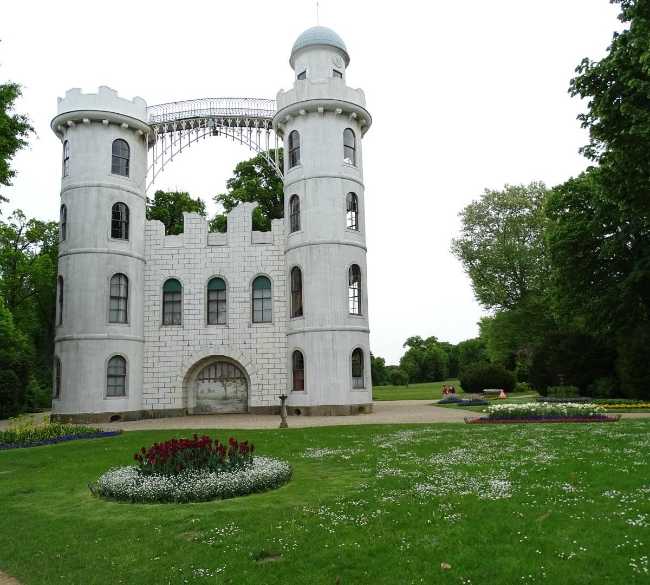
Pfaueninsel, or Peacock Island, is a romantic retreat nestled in the River Havel near Berlin’s Wannsee district. Accessible only by ferry, this UNESCO World Heritage Site blends nature, architecture, and royal history. Commissioned by Frederick William II in the late 18th century, the island features a whimsical white palace built for the king and his mistress, Wilhelmine Enke. Designed in a romantic ruin style, the palace anchors a landscape of meadows, woodlands, and exotic flora inspired by South Pacific islands. Free-roaming peacocks, buffalo, and an aviary add to its charm, while historical structures like the Gothic-style dairy, Queen Luise’s memorial temple, and the Kavaliershaus enrich the experience. Landscape architect Peter Joseph Lenné later transformed the grounds into an English-style park. Today, Pfaueninsel remains a tranquil escape from urban life, offering leisurely walks, scenic views, and a glimpse into Prussian elegance and eccentricity.
Berlin GermanyPfaueninsel, or Peacock Island, lies in the River Havel in Berlin-Wannsee, in the southwestern part of Berlin near the border with Potsdam. Accessible only by a small ferry from the Pfaueninselchaussee in Zehlendorf (postcode 14109), the 67-hectare island is part of the UNESCO World Heritage-listed Palaces and Parks of Potsdam and Berlin. A nature and wildlife reserve, Pfaueninsel charms with its romantic landscape, free-roaming peacocks, wildflower meadows, woodlands, and the whimsical neo-classical Peacock Island Palace built for King Frederick William II. Other notable features include a dairy, historic follies, a column fountain, rose garden, and the memorial temple for Queen Luise. The ferry crossing preserves the island’s tranquil, car-free atmosphere, making it ideal for leisurely strolls and picnics. Nearby attractions include the lush Volkspark Klein-Glienicke and riverfront walks, Glienicke Bridge famous for Cold War spy exchanges, and the cultural sites of Potsdam and Wannsee, easily reached by public transport from central Berlin.
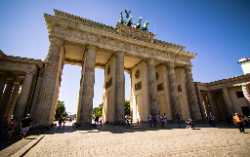 Brandenburg Gate
Berlin
Brandenburg Gate
Berlin
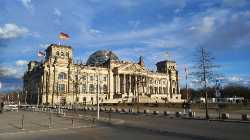 Reichstag Building & Dome
Berlin
Reichstag Building & Dome
Berlin
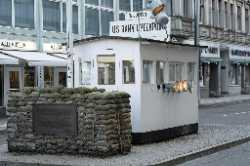 Checkpoint Charlie
Berlin
Checkpoint Charlie
Berlin
 East Side Gallery
Berlin
East Side Gallery
Berlin
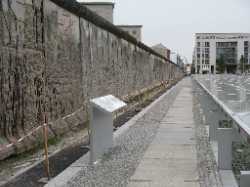 Berlin Wall Memorial
Berlin
Berlin Wall Memorial
Berlin
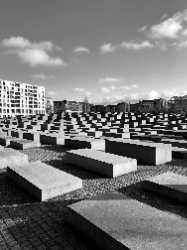 Holocaust Memorial
Berlin
Holocaust Memorial
Berlin
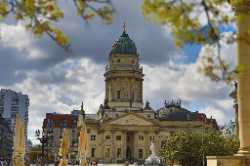 Gendarmenmarkt
Berlin
Gendarmenmarkt
Berlin
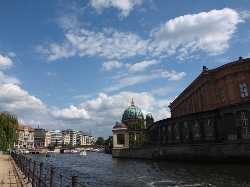 Museum Island
Berlin
Museum Island
Berlin
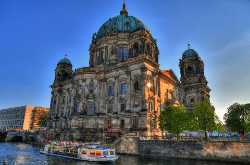 Berlin Cathedral
Berlin
Berlin Cathedral
Berlin
 Anne Frank Center
Berlin
Anne Frank Center
Berlin
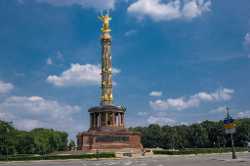 Victory Column
Berlin
Victory Column
Berlin
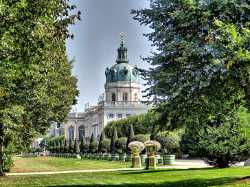 Charlottenburg Palace & Gardens
Berlin
Charlottenburg Palace & Gardens
Berlin
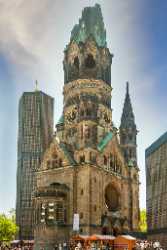 Kaiser Wilhelm Memorial
Berlin
Kaiser Wilhelm Memorial
Berlin
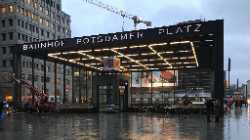 Potsdamer Platz
Berlin
Potsdamer Platz
Berlin
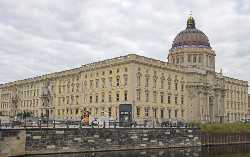 Humboldt Forum
Berlin
Humboldt Forum
Berlin
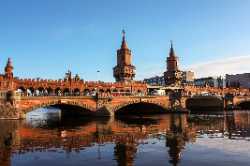 Oberbaum Bridge
Berlin
Oberbaum Bridge
Berlin
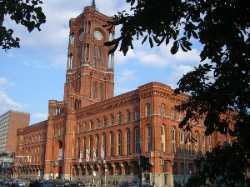 Red Town Hall
Berlin
Red Town Hall
Berlin
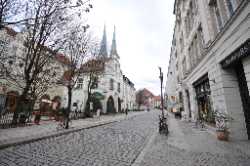 Nikolaiviertel
Berlin
Nikolaiviertel
Berlin
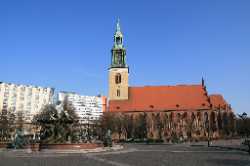 Marienkirche
Berlin
Marienkirche
Berlin
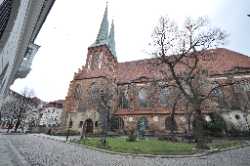 Nikolaikirche
Berlin
Nikolaikirche
Berlin
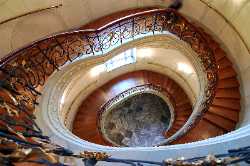 Ephraim-Palais
Berlin
Ephraim-Palais
Berlin
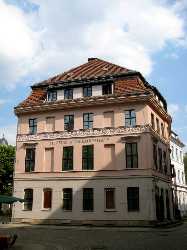 Knoblauchhaus
Berlin
Knoblauchhaus
Berlin
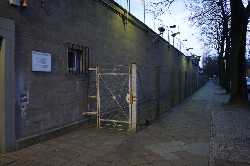 Hohenschönhausen Memorial
Berlin
Hohenschönhausen Memorial
Berlin
 Allied Museum
Berlin
Allied Museum
Berlin
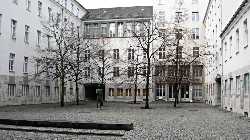 German Resistance Memorial Center
Berlin
German Resistance Memorial Center
Berlin
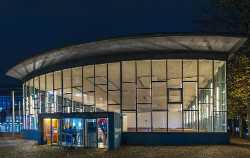 Tränenpalast
Berlin
Tränenpalast
Berlin
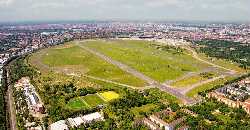 Tempelhofer Feld
Berlin
Tempelhofer Feld
Berlin
 Anhalter Bahnhof
Berlin
Anhalter Bahnhof
Berlin
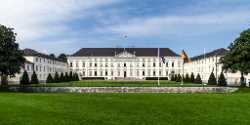 Bellevue Palace
Berlin
Bellevue Palace
Berlin
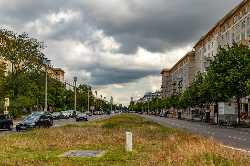 Karl-Marx-Allee
Berlin
Karl-Marx-Allee
Berlin
 Dead Chicken Alley
Berlin
Dead Chicken Alley
Berlin
 Teufelsberg
Berlin
Teufelsberg
Berlin
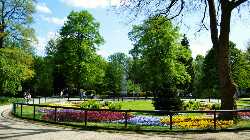 Luiseninsel
Berlin
Luiseninsel
Berlin
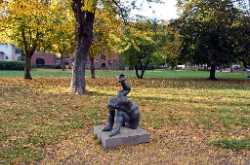 Monbijoupark
Berlin
Monbijoupark
Berlin
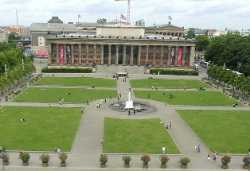 Lustgarten
Berlin
Lustgarten
Berlin
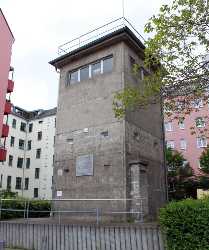 Gedenkstätte Günter Litfin
Berlin
Gedenkstätte Günter Litfin
Berlin
 The Story of Berlin
Berlin
The Story of Berlin
Berlin
 DDR Museum
Berlin
DDR Museum
Berlin
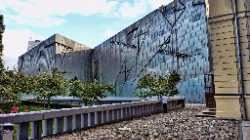 Jewish Museum Berlin
Berlin
Jewish Museum Berlin
Berlin
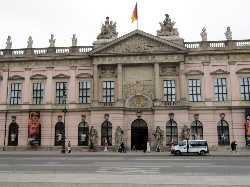 German Historical Museum
Berlin
German Historical Museum
Berlin
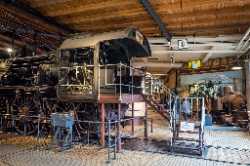 German Museum of Technology
Berlin
German Museum of Technology
Berlin
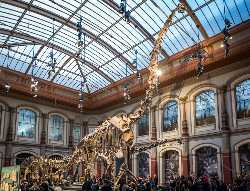 Museum für Naturkunde
Berlin
Museum für Naturkunde
Berlin
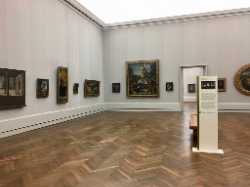 Gemäldegalerie
Berlin
Gemäldegalerie
Berlin
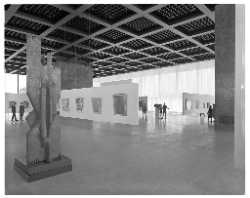 Neue Nationalgalerie
Berlin
Neue Nationalgalerie
Berlin
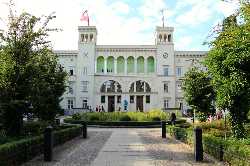 Hamburger Bahnhof
Berlin
Hamburger Bahnhof
Berlin
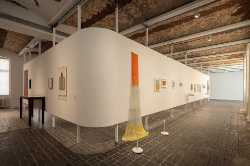 KW Institute for Contemporary Art
Berlin
KW Institute for Contemporary Art
Berlin
 Berlinische Galerie
Berlin
Berlinische Galerie
Berlin
 Brücke Museum
Berlin
Brücke Museum
Berlin
 Bauhaus Archive
Berlin
Bauhaus Archive
Berlin
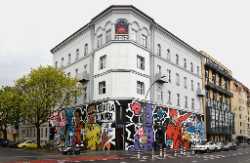 Urban Nation
Berlin
Urban Nation
Berlin
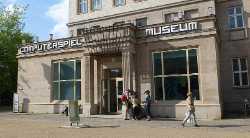 Computer Games Museum
Berlin
Computer Games Museum
Berlin
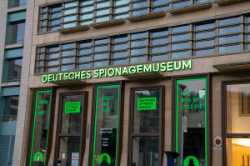 German Spy Museum
Berlin
German Spy Museum
Berlin
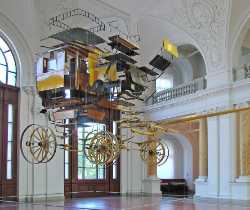 Museum for Communication Berlin
Berlin
Museum for Communication Berlin
Berlin
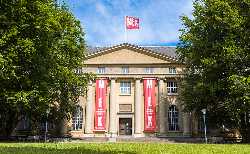 Museum of European Cultures
Berlin
Museum of European Cultures
Berlin
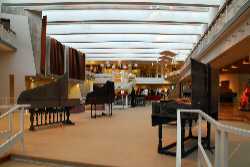 Musical Instrument Museum
Berlin
Musical Instrument Museum
Berlin
 Museum of Photography Berlin
Berlin
Museum of Photography Berlin
Berlin
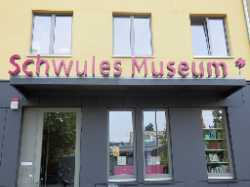 Schwules Museum
Berlin
Schwules Museum
Berlin
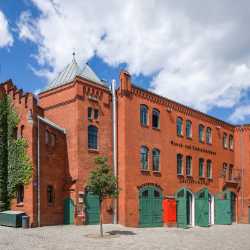 Museum at the Kulturbrauerei
Berlin
Museum at the Kulturbrauerei
Berlin
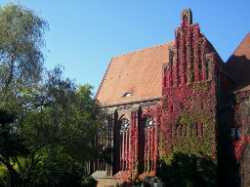 Märkisches Museum
Berlin
Märkisches Museum
Berlin
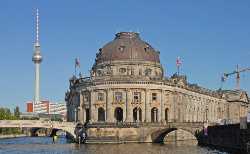 Bode Museum
Berlin
Bode Museum
Berlin
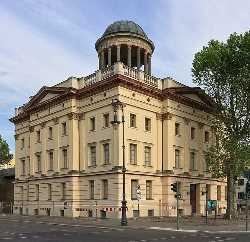 Sammlung Scharf-Gerstenberg
Berlin
Sammlung Scharf-Gerstenberg
Berlin
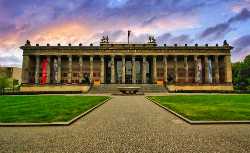 Altes Museum
Berlin
Altes Museum
Berlin
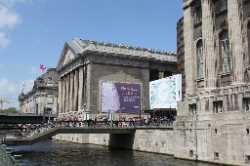 Pergamon Museum
Berlin
Pergamon Museum
Berlin
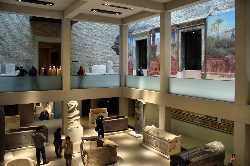 Neues Museum
Berlin
Neues Museum
Berlin
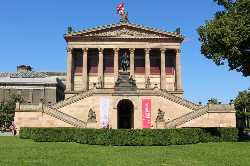 Alte Nationalgalerie
Berlin
Alte Nationalgalerie
Berlin
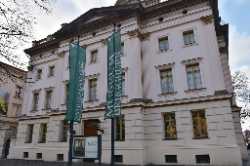 Berggruen Museum
Berlin
Berggruen Museum
Berlin
 Museum Otto Weidt's Workshop for the Blind
Berlin
Museum Otto Weidt's Workshop for the Blind
Berlin
 Anti-War Museum Berlin
Berlin
Anti-War Museum Berlin
Berlin
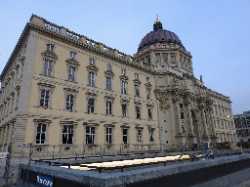 Humboldt Forum
Berlin
Humboldt Forum
Berlin
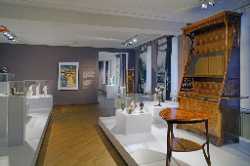 Bröhan Museum
Berlin
Bröhan Museum
Berlin
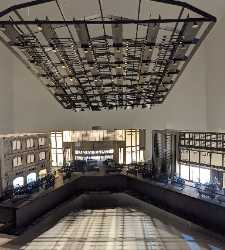 Filmmuseum Berlin
Berlin
Filmmuseum Berlin
Berlin
 Illuseum Berlin
Berlin
Illuseum Berlin
Berlin
 Magicum Berlin
Berlin
Magicum Berlin
Berlin
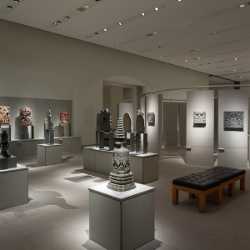 Museum für Asiatische Kunst
Berlin
Museum für Asiatische Kunst
Berlin
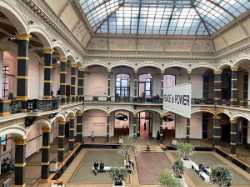 Gropius Bau
Berlin
Gropius Bau
Berlin
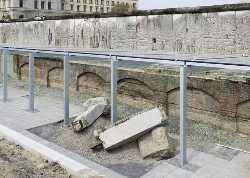 Topography of Terror
Berlin
Topography of Terror
Berlin
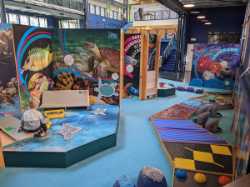 Labyrinth Kindermuseum Berlin
Berlin
Labyrinth Kindermuseum Berlin
Berlin
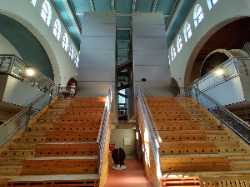 MACHmit
Berlin
MACHmit
Berlin
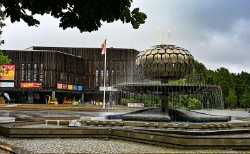 FEZ Berlin
Berlin
FEZ Berlin
Berlin
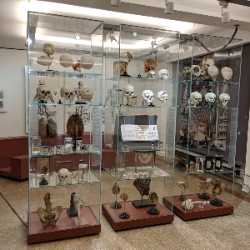 Museum of Medical History at the Charité
Berlin
Museum of Medical History at the Charité
Berlin
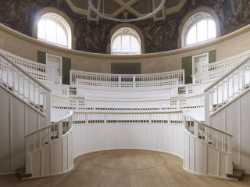 Veterinary Anatomy Theater
Berlin
Veterinary Anatomy Theater
Berlin
 Museum of Letters
Berlin
Museum of Letters
Berlin
 Lipstick Museum
Berlin
Lipstick Museum
Berlin
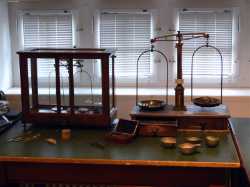 Zucker Museum
Berlin
Zucker Museum
Berlin
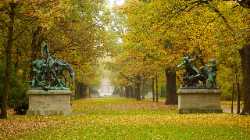 Tiergarten
Berlin
Tiergarten
Berlin
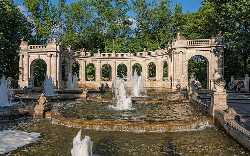 Volkspark Friedrichshain
Berlin
Volkspark Friedrichshain
Berlin
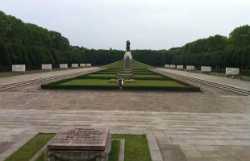 Treptower Park
Berlin
Treptower Park
Berlin
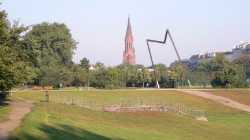 Görlitzer Park
Berlin
Görlitzer Park
Berlin
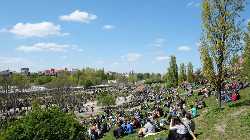 Mauerpark
Berlin
Mauerpark
Berlin
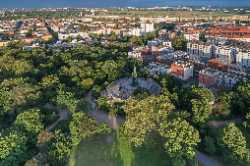 Viktoriapark
Berlin
Viktoriapark
Berlin
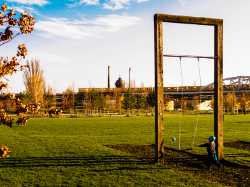 Park am Gleisdreieck
Berlin
Park am Gleisdreieck
Berlin
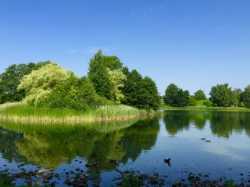 Britzer Garten
Berlin
Britzer Garten
Berlin
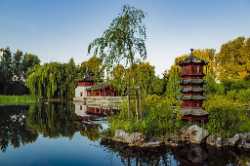 Gardens of the World
Berlin
Gardens of the World
Berlin
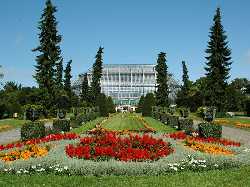 Botanischer Garten
Berlin
Botanischer Garten
Berlin
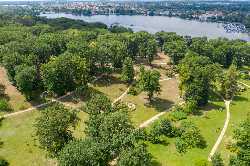 Babelsberg Park
Berlin
Babelsberg Park
Berlin
 Grunewald
Berlin
Grunewald
Berlin
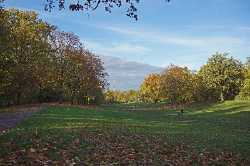 Volkspark Hasenheide
Berlin
Volkspark Hasenheide
Berlin
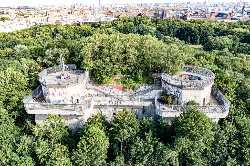 Humboldthain Park
Berlin
Humboldthain Park
Berlin
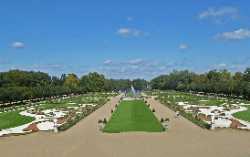 Schlosspark Charlottenburg
Berlin
Schlosspark Charlottenburg
Berlin
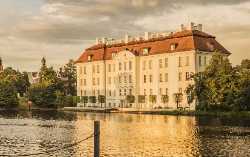 Köpenick Palace Gardens
Berlin
Köpenick Palace Gardens
Berlin
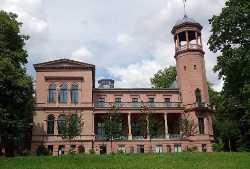 Biesdorf Palace and Gardens
Berlin
Biesdorf Palace and Gardens
Berlin
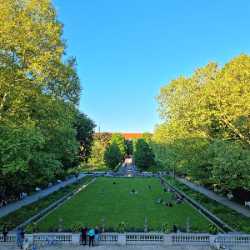 Körnerpark
Berlin
Körnerpark
Berlin
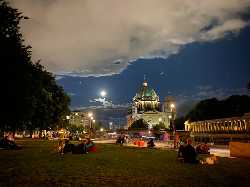 James Simon Park
Berlin
James Simon Park
Berlin
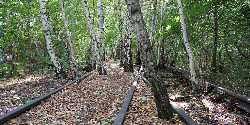 Natur-Park Südgelände
Berlin
Natur-Park Südgelände
Berlin
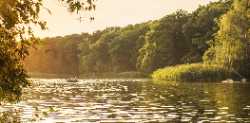 Schlachtensee
Berlin
Schlachtensee
Berlin
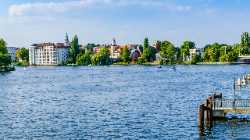 Müggelsee
Berlin
Müggelsee
Berlin
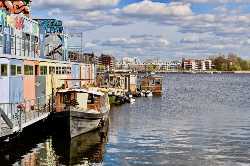 Rummelsburger Bucht
Berlin
Rummelsburger Bucht
Berlin
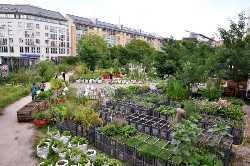 Prinzessinnengärten
Berlin
Prinzessinnengärten
Berlin
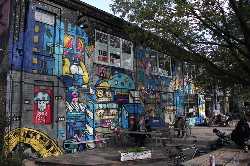 Urban Spree
Berlin
Urban Spree
Berlin
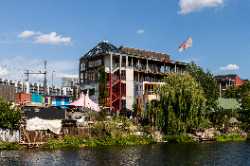 Holzmarkt25
Berlin
Holzmarkt25
Berlin
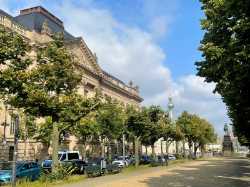 Unter den Linden
Berlin
Unter den Linden
Berlin
 Winterfeldtmarkt
Berlin
Winterfeldtmarkt
Berlin
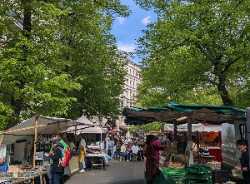 Kollwitzplatz Market
Berlin
Kollwitzplatz Market
Berlin
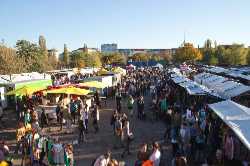 Mauerpark Flea Market
Berlin
Mauerpark Flea Market
Berlin
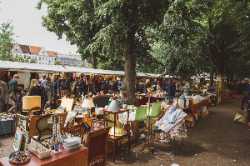 Boxhagener Platz Flea Market
Berlin
Boxhagener Platz Flea Market
Berlin
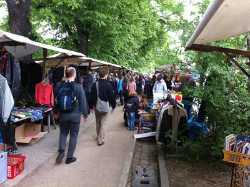 Nowkoelln Flowmarkt
Berlin
Nowkoelln Flowmarkt
Berlin
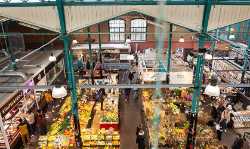 Markthalle Neun
Berlin
Markthalle Neun
Berlin
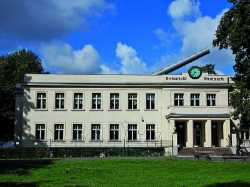 Archenhold Observatory
Berlin
Archenhold Observatory
Berlin
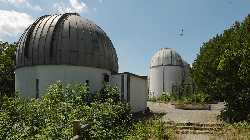 Wilhelm-Foerster Observatory
Berlin
Wilhelm-Foerster Observatory
Berlin
 Planetarium am Insulaner
Berlin
Planetarium am Insulaner
Berlin
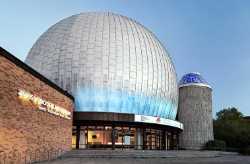 Zeiss-Großplanetarium
Berlin
Zeiss-Großplanetarium
Berlin
 Military Aviation Museum
Berlin
Military Aviation Museum
Berlin
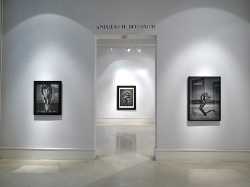 Camera Work
Berlin
Camera Work
Berlin
 Galerie Newman
Berlin
Galerie Newman
Berlin
 Contemporary Fine Arts
Berlin
Contemporary Fine Arts
Berlin
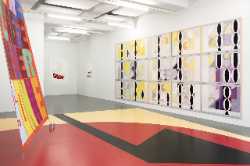 Daadgalerie
Berlin
Daadgalerie
Berlin
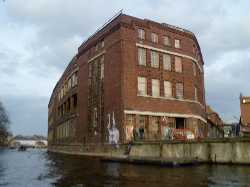 Flutgraben e.V.
Berlin
Flutgraben e.V.
Berlin
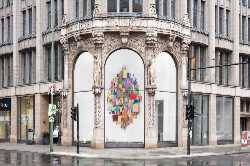 Galerie Thomas Schulte
Berlin
Galerie Thomas Schulte
Berlin
 Galerie Wedding
Berlin
Galerie Wedding
Berlin
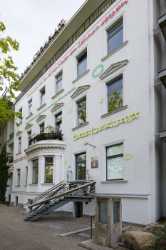 Haus am Lützowplatz
Berlin
Haus am Lützowplatz
Berlin
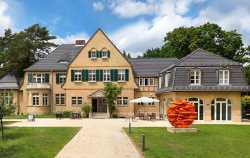 Haus am Waldsee
Berlin
Haus am Waldsee
Berlin
 Julia Stoschek Collection
Berlin
Julia Stoschek Collection
Berlin
 Johann König
Berlin
Johann König
Berlin
 Sprüth Magers
Berlin
Sprüth Magers
Berlin
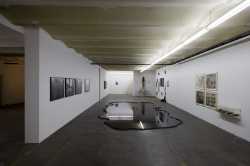 Galeria Plan B
Berlin
Galeria Plan B
Berlin
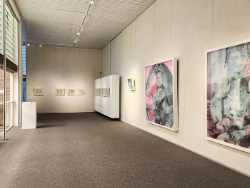 Zilberman Gallery
Berlin
Zilberman Gallery
Berlin
 Galerie Buchholz
Berlin
Galerie Buchholz
Berlin
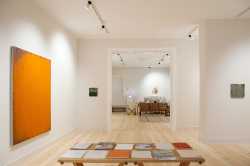 Galerie Albrecht
Berlin
Galerie Albrecht
Berlin
 Boros Collection
Berlin
Boros Collection
Berlin
 Carlier Gebauer
Berlin
Carlier Gebauer
Berlin